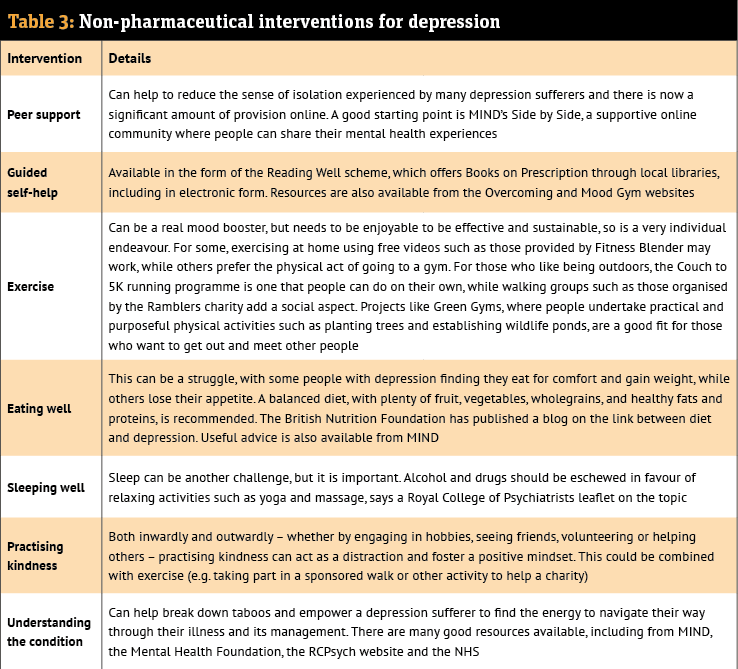4. Ending the consultation
When closing the consultation, check whether the patient has any other questions they want to ask or whether there is anything they would like you to go over again:
- “Is there anything else you want to know about your medicine?”
The information a patient receives when starting a new medicine can feel overwhelming, so asking this question gives them embarrassment-free permission to ask for certain key information to be repeated. This could make all the difference in terms of compliance going forward.
With antidepressants, it is not uncommon for patients to ask:
- “How long will I have to take this for?”
- “Will I be able to come off this?”
A suggested answer would be that, on average, a person would normally take an antidepressant for between six months and two years. While antidepressants are not addictive or habit-forming, people can experience withdrawal effects when stopping them, which is why a step-down approach is recommended.
It is important to remind patients that every person is an individual and, ultimately, the length of treatment needed will depend on the severity of their depression, the risks associated with untreated disease and, of course, their own personal preferences.
If the patient does not have further questions at this point, suggest they make a note of any that occur in the future and come back in to ask them.
Check when they are next seeing another healthcare professional to make sure the appropriate follow-up is in place.
The end of the consultation also provides an opportunity to signpost the patient to additional support and interventions that may be beneficial for their mental health in the future.
It is always important to remember that antidepressant medication is most effective when used alongside other non-pharmaceutical interventions, such as those outlined in Table 3, below.

